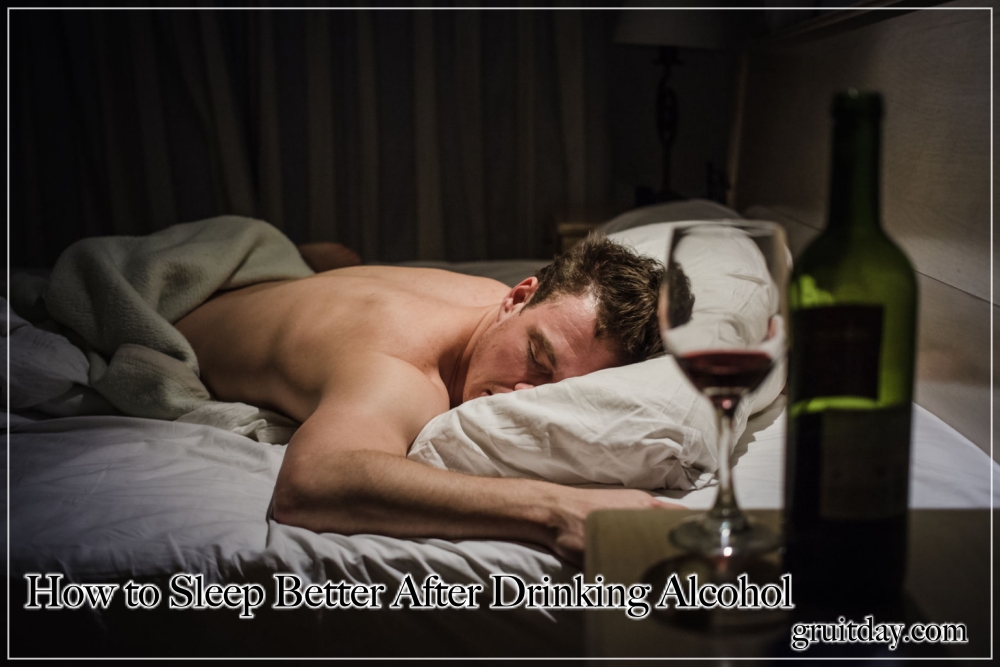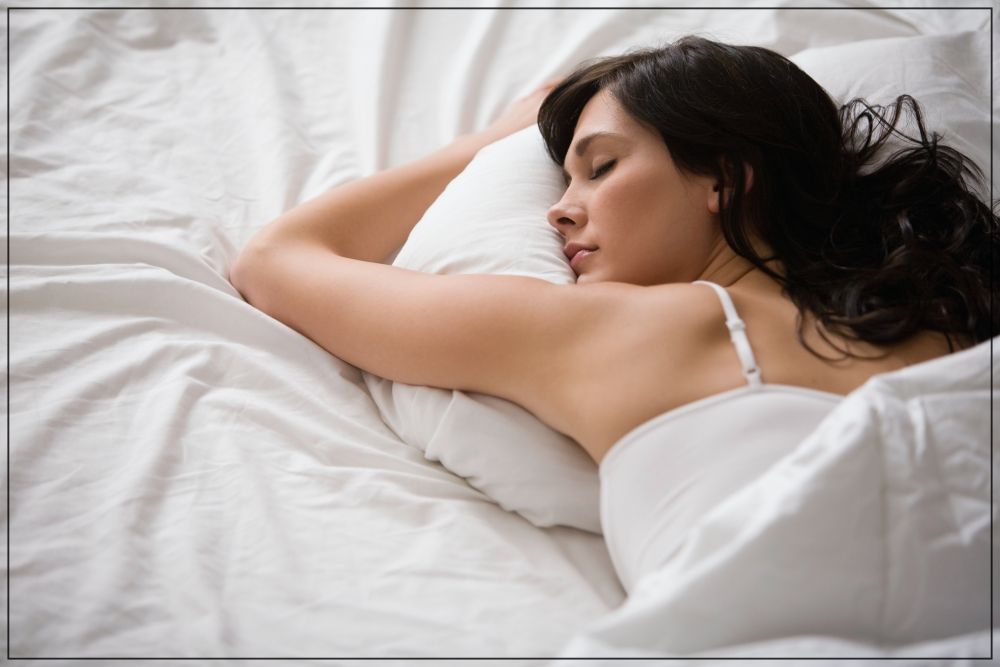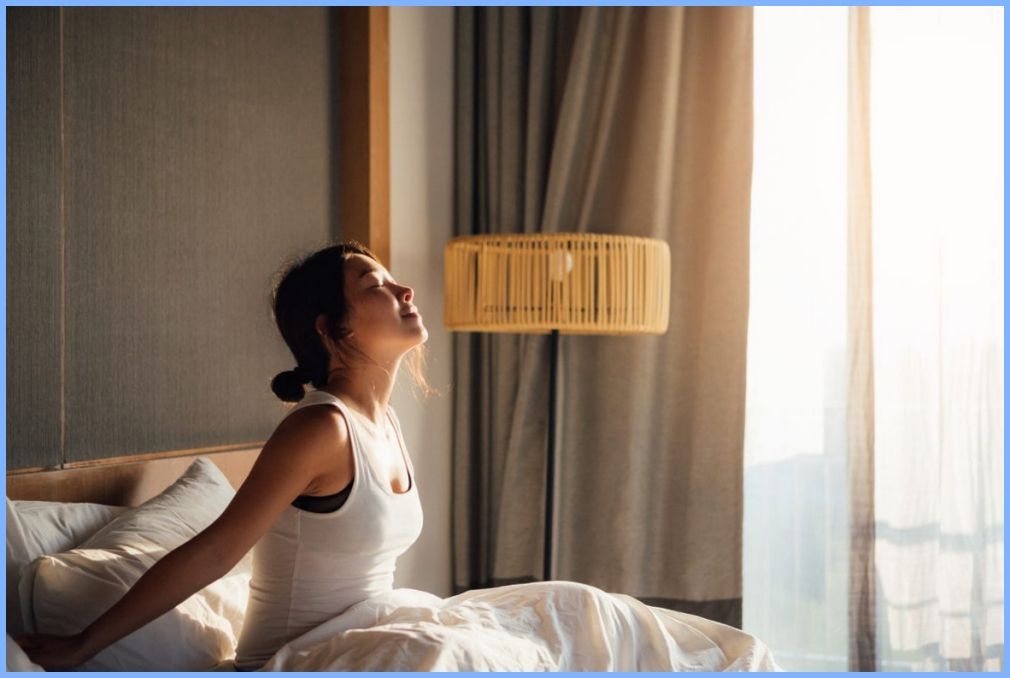For many of us, having a few drinks can be a great way to relax after a long day or celebrate an occasion. But unfortunately, drinking alcohol can also affect our sleep quality. In fact, research has shown that alcohol consumption before bedtime can disturb the natural patterns of your sleeping cycle and reduce the amount of REM (rapid-eye-movement) sleep you get.
However, with the right strategies, you can still enjoy a few drinks and get a good night’s rest. In this post, we will be sharing 4 practical tips on how to improve your sleep quality after drinking alcohol.

One of the most important things you can do to sleep better after drinking alcohol is to stay hydrated. Alcohol is a diuretic, meaning it can cause you to lose fluids and become dehydrated. This can make it harder for you to fall asleep and stay asleep throughout the night. To combat this, make sure to drink plenty of water before bed and keep a glass of water by your bedside in case you wake up thirsty during the night.
Another key factor in getting better sleep after drinking alcohol is to avoid caffeine and other stimulants. These substances can interfere with your body’s natural sleep rhythms and make it harder for you to fall asleep. Instead, opt for a soothing cup of chamomile tea or another non-caffeinated beverage to help you wind down before bed. By taking these simple steps, you can improve your sleep quality after drinking alcohol and wake up feeling refreshed and energized the next day.
Effects of Alcohol on Sleep
Alcohol’s Impact on Sleep Architecture
When we consume alcohol, it can have a significant impact on our sleep architecture, which refers to the different stages of sleep that we go through each night. Specifically, alcohol can disrupt our REM (rapid eye movement) sleep, which is the stage of sleep where we dream and experience restorative benefits.
Studies have shown that alcohol consumption can decrease the amount of time we spend in REM sleep, leading to less restorative sleep overall. Additionally, alcohol can cause us to spend more time in the lighter stages of sleep, such as stage 1 and stage 2, and less time in the deeper stages of sleep, such as stage 3 and stage 4. This can lead to feelings of grogginess and fatigue upon waking up, even if we slept for a long period of time.
Alcohol’s Impact on Sleep Quality
In addition to disrupting our sleep architecture, alcohol can also have a negative impact on the overall quality of our sleep. For example, alcohol can cause us to snore or experience sleep apnea, which is a condition where we briefly stop breathing during sleep. This can lead to frequent awakenings throughout the night, which can disrupt our sleep and make us feel less rested in the morning.

Furthermore, alcohol can also cause us to experience more vivid dreams or nightmares, which can be disturbing and disruptive to our sleep. This can lead to feelings of anxiety or stress upon waking up, which can make it harder to fall back asleep and get the rest we need.
Overall, it’s important to be aware of the potential impact that alcohol can have on our sleep. While it may help us fall asleep faster initially, it can ultimately lead to less restorative sleep and feelings of fatigue and grogginess in the morning.
Tips for Sleeping Better After Drinking Alcohol
Hydrate Before Bed
One of the most important things you can do to help yourself sleep better after drinking alcohol is to stay hydrated. Alcohol is a diuretic, which means that it can cause dehydration. Dehydration can lead to a number of unpleasant symptoms, including headaches, fatigue, and difficulty sleeping. To avoid these symptoms, make sure to drink plenty of water before bed. We recommend drinking at least one glass of water for every alcoholic beverage you consume.
Avoid Stimulants
Stimulants like caffeine can interfere with your ability to fall asleep and stay asleep. If you’ve been drinking alcohol, it’s especially important to avoid stimulants before bed. This means avoiding coffee, tea, soda, and other caffeinated beverages. It’s also a good idea to avoid nicotine, which can have a stimulating effect on the body.
Create a Sleep-Conducive Environment
Creating a sleep-conducive environment can help you fall asleep faster and stay asleep longer. This means making sure your bedroom is cool, dark, and quiet. Use blackout curtains or an eye mask to block out light, and use earplugs or a white noise machine to block out noise. We also recommend investing in a comfortable mattress and pillows, trying to find the best mattress topper, and other bedding stuffs to help you get a good night’s sleep.

Practice Relaxation Techniques
Relaxation techniques like deep breathing, meditation, and progressive muscle relaxation can help you relax and fall asleep more easily. Try taking a few deep breaths before bed, or practicing a relaxation technique like meditation or progressive muscle relaxation. You can also try taking a warm bath or shower before bed, which can help relax your muscles and prepare your body for sleep.
Remember, getting a good night’s sleep is important for your overall health and well-being. By following these tips, you can help yourself sleep better after drinking alcohol and wake up feeling refreshed and ready to take on the day.
Avoiding Alcohol Before Bed
When it comes to getting a good night’s sleep, avoiding alcohol before bed is crucial. While alcohol may initially make us feel drowsy and relaxed, it can actually disrupt our sleep patterns and leave us feeling groggy and unrested in the morning.
One way to avoid alcohol before bed is to limit our drinking earlier in the evening. This gives our bodies time to metabolize the alcohol before we try to sleep, reducing the chances of waking up in the middle of the night or feeling tired after waking up.
Another strategy is to switch to non-alcoholic beverages later in the evening. This can help us stay hydrated and avoid the negative effects of alcohol on our sleep.
If we do choose to drink alcohol before bed, it’s important to do so in moderation and to avoid drinking too close to bedtime. We should also be mindful of the type of alcohol we’re consuming, as some types may have more of an impact on our sleep than others.
Overall, by being mindful of our alcohol consumption and making changes to our drinking habits, we can improve our sleep and wake up feeling refreshed and energized.
Leave a Reply